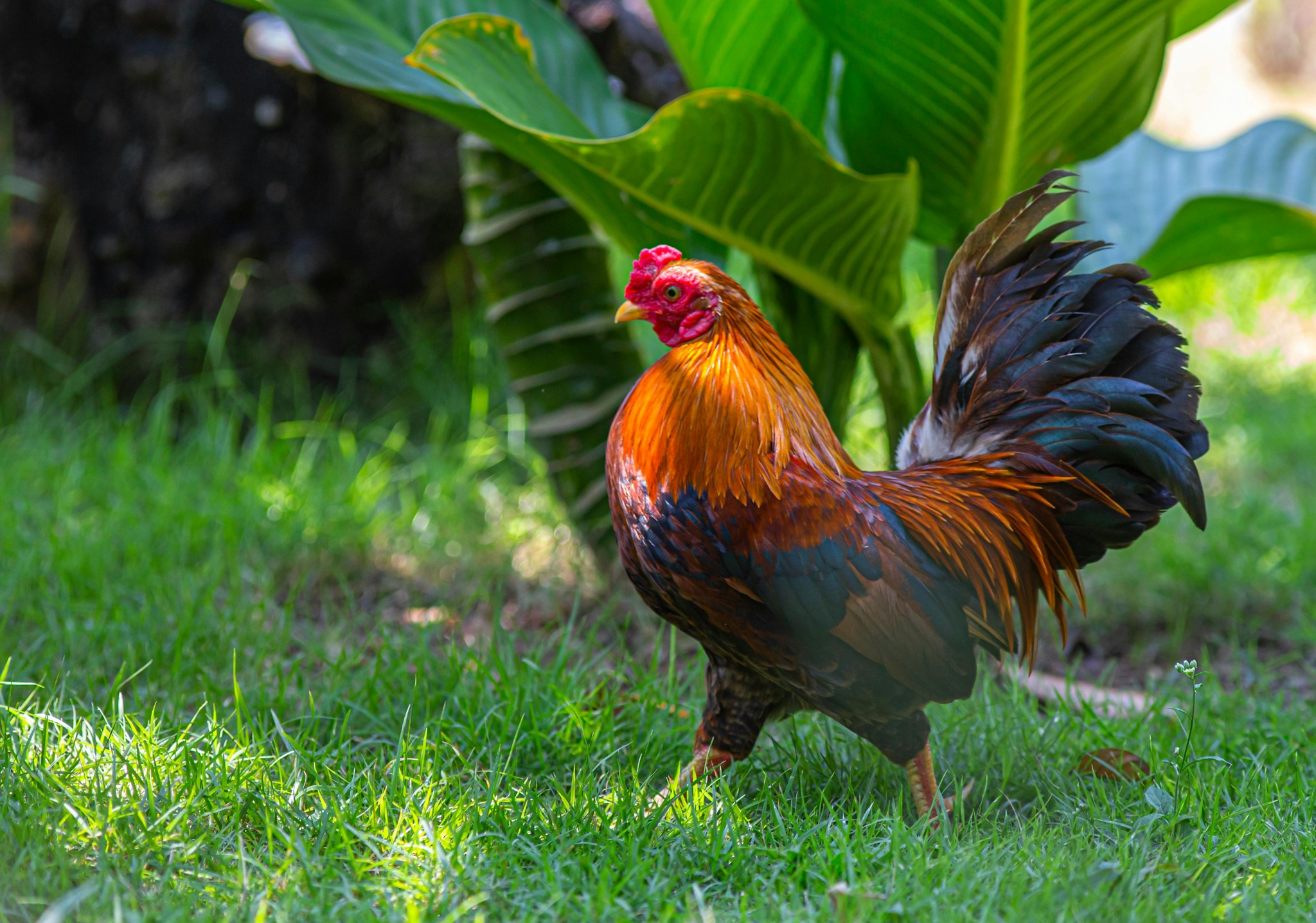The rooster is a male chicken (Gallus gallus domesticus), known for its distinctive crowing at dawn. Here are some key features and characteristics of roosters:
- Physical Appearance: Roosters are typically larger and more colorful than hens (female chickens). They have brightly colored plumage with vibrant patterns, including iridescent feathers on their necks and tails. Their most distinctive feature is the comb on top of their head, which can vary in size and shape depending on the breed.
- Crow: Roosters crow to establish their territory and communicate with other chickens. Contrary to popular belief, they don’t just crow at dawn; they can crow at any time of the day and night. However, crowing at dawn is more common and often louder due to hormonal triggers related to the sunrise.
- Behavior: Roosters play a significant role in the social dynamics of a flock. They are known to be protective of their hens and will often keep a lookout for potential threats such as predators. Roosters may engage in displays of dominance, including puffing up their feathers, flapping their wings, and making aggressive gestures toward other roosters.
- Reproduction: The primary role of a rooster is to fertilize eggs laid by hens, leading to the production of chicks. Roosters perform a mating dance known as “tidbitting,” where they pick up and drop food items to attract hens and demonstrate their suitability as mates.
- Breed Varieties: There are numerous breeds of chickens, each with its own unique characteristics and traits. Some popular rooster breeds include the Rhode Island Red, Leghorn, Brahma, and Orpington, among others. Breed differences can affect temperament, size, coloration, and egg-laying capabilities.
- Livelihood: Roosters are commonly raised in agricultural settings for their meat, eggs, and feathers. In addition to their role in natural reproduction, they are also used in selective breeding programs to improve desirable traits in chicken populations.
- Symbolism: Roosters are often associated with various cultural and symbolic meanings. In many cultures, they symbolize strength, virility, and protection. In some traditions, they are considered symbols of good luck or prosperity.
Overall, roosters are iconic farm animals with a rich history of domestication and cultural significance. Their crowing, vibrant plumage, and role in chicken reproduction make them fascinating creatures to observe and interact with.
Visited 416 times, 8 visit(s) today
Views: 481
Subscribe to the newsletter:
